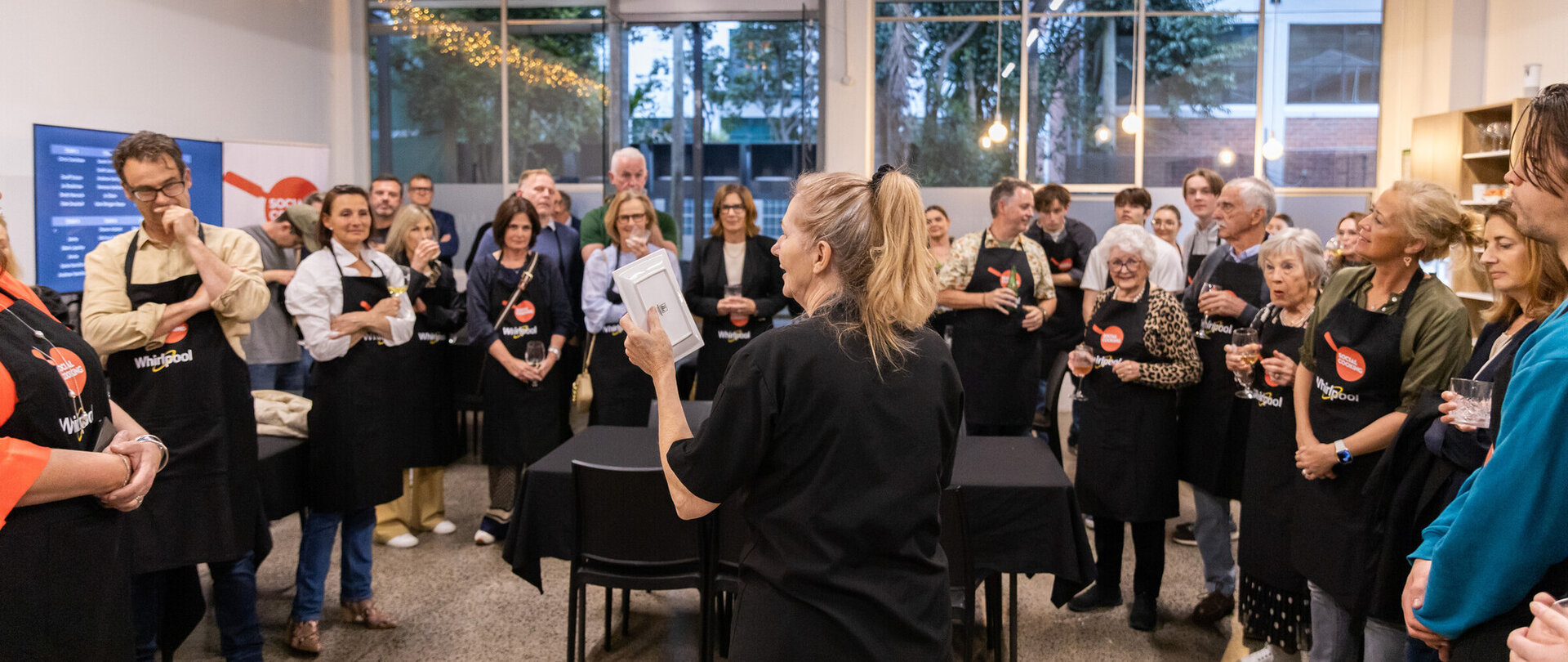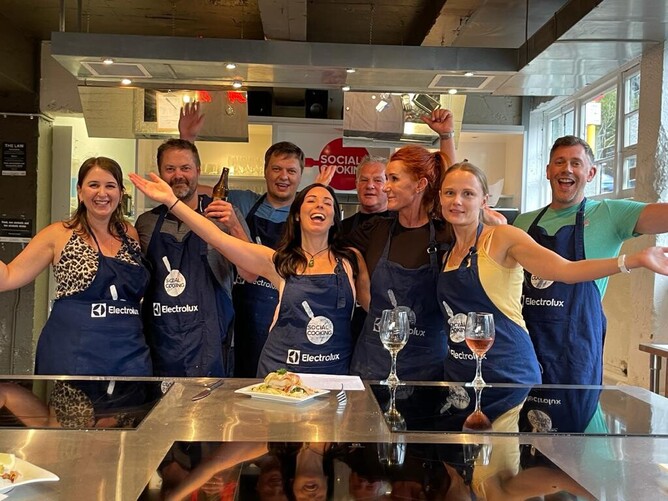Food has always had a reputation for bringing people together. We celebrate over food, grieve over food, obsess over food! Food is at the centre of all the major events in our lives, weddings, funerals, Christmas, birthdays, you name it, we cook and eat with others. So what about our professional lives? Can team building cooking challenges bring our work people together?
Why yes. Yes, they can. And very effectively too! Team building events with cooking at the centre can build creativity, encourage problem solving, and are all inclusive. They break down barriers between team members, flatten hierarchies and encourage social relationships. They promote teamwork in a practical sense, in an unusual setting, while providing a delicious payoff at the end.
In other words, team building cooking challenges tick a lot of boxes.
Find our more about how our Social Cooking team building challenges work here, and if you want to know more about our event formats and pricing, go here!
1. Building creativity
Boredom and routine has a way of dragging down team morale and business. When it comes to corporate cooking events, competitive spirit comes out, and teams start to think outside the box. Employees start creating dishes in extraordinary ways, innovating in the flavours they use and the way they present their dish. Teams become engaged, and routine has been broken!
2. Encouraging problem solving
The kitchen can be a nightmare especially when you have no clue what you are doing. Is the pan too hot or too cold? Did you add too much salt? Or worse, replace the sugar with salt?!
Our Masterchef Challenges charge our teams to create a meal from scratch. No recipes, some guidance and a limited (but generous) range of items in our pantry. Teams need to work together to solve the biggest problem of the day – what to cook?
The key is to think logically as a team and come to a common solution that will get the job gets done. The same principle is later applied in the work environment.
3. All inclusive
Many team building events require physicality that is not suited to all people. They can be exclusive of those with physical limitations, be they physical or age related. When someone feels excluded from the get-go, the primary objective of team building, to build teams, is defeated.
Cooking challenges provides an activity which is suitable for a variety of different people irrespective of their age or fitness level. Cooking is an all-encompassing, all-welcoming activity which is suitable for all. The advantage of a cooking challenge for many employers is that everyone can be involved regardless of their skill level. The basics of cooking are pretty easy for most people, so any level of expertise can be accommodated.

4. Breaking down barriers and flattening hierarchies
It can be a challenge to break down the barriers between senior management and more junior staff. There is often a formality to inter office relationships which can prevent staff from sharing opinions, or being open about how they feel in different work situations.
In a cooking challenge, these hierarchies need to be left at the door. Time pressures mean that teams need to work as a cohesive unit, and there is no room for formalities. Additionally, we often find that the junior staff members cooking skills are far superior to the CEO’s! Resulting in senior management having to defer to admin staff.
This also applies to cultural barriers. Team members from different ethnic backgrounds, who may struggle to fit in to an office environment, can let their culture shine in a cooking challenge. The more unusual flavours and delicious approach to the challenge leads to increased understanding and respect from team mates.
5. Encouraging social relationships
How much do you know about your fellow co-worker? Do you wonder how he grew up, what keeps him/her going?
Team building cooking challenges are so much more than just cooking. They also allow you to get to know the other person in a more personal way. You get to understand who they are outside of work. Their family, interests, strengths, and weaknesses. At the same time, they also get to know you as more than a colleague. You share deeper and meaningful conversations which in turn increase your bond




